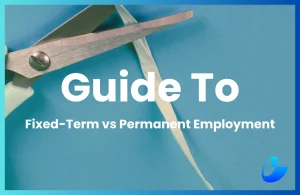The Companies Act 2016 allows companies to issue shares with different rights and obligations, and the two most important are ordinary and preference shares.

In terms of rights and risks, they total opposites, making it crucial for potential company owners to know what they are getting themselves into!
In this guide, we hope to do just that,
Side-by-side comparison
If you’re already familiar with the concept of shareholding and dividends, this table might be all the explanation you need.
| Feature | Ordinary Shares | Preference Shares |
| Voting Rights | Yes | Often none |
| Dividends | Variable, not guaranteed | Fixed and paid first |
| Liquidation Priority | Last to be paid | Ahead of ordinary shareholders |
| Risk | Higher (performance based) | Lower (fixed returns) |
| Common Holders | Founders, senior management, general shareholders | Institutional investors, venture capital firms, angel investors |
| Customisability | Standard terms | Often tailored |
If that was enough, we were happy to help!
If not, keep reading for a full explanation.
What are ordinary shares?
Ordinary shares are the most common form of equity issued by companies, and when you hear someone is a “shareholder,” they’re usually holding ordinary shares.
Key features:
- typically grants one vote per share during general meetings
- dividends paid only if declared by the board
- during wind-ups, company debts and preference share claims are settled first
Ordinary shares put their holders in the driver’s seat: They call the shots, so if they miss, they pay a higher price compared to those in the passenger seats.
What are preference shares?
Preference shares are used to attract investors in startup or private equity funding rounds as part of a structured investment.
This is because where ordinary shares grant variable dividends, preference shares almost always grant dividends at a fixed rate, and ahead of ordinary shareholders.
In short, a preference shareholder gets paid first, and no matter what.
These shares can further take on forms that grant specific financial or exit protections, such as the following:
| Type of Preference Share | Feature | Protection |
| Redeemable Preference Shares | Can be bought back by the company after a certain period. | Provides a planned exit for investors, reducing long-term risk. |
| Convertible Preference Shares | Can be converted into ordinary shares. | Allows investors to benefit from future company growth and equity upside. |
| Redeemable Convertible Preference Shares | Can be bought back by the company and converted into ordinary shares. | Offers both liquidity (via redemption) and upside potential (via conversion). |
| Irredeemable Convertible Preference Shares | Cannot be redeemed but can be converted into ordinary shares. | Locks in long-term participation but provides future access to ordinary share rights and value. |
In exchange for these protections, preference shares come with one big trade-off: They do not grant any voting rights to holders.
Key features:
- holders receive dividends at a fixed rate and before ordinary shareholders
- if company is wound up, preference shareholders are paid first
- in most cases, preference shares carry no voting rights unless specified
Preference shares offer greater protection but less control over company decisions, which aligns with the priority of most investors!
Takeaways for shareholders
In our experience assisting clients during fundraising exercises, exits, and disputes, share class is often a decisive factor

This is not at all surprising as it affects the holder’s:
- voting power on company decisions
- entitlement to dividends
- payout priority in a liquidation or sale, and
- rights to transfer or exit
As mentioned at the start, the Companies Act allows companies to issue shares with different rights and obligations, but only if clearly stated in a:
- Company Constitution (adopted and lodged with SSM)
- Subscription or investment agreement
And if that’s something you could use help with, speak to our team at ELP!










